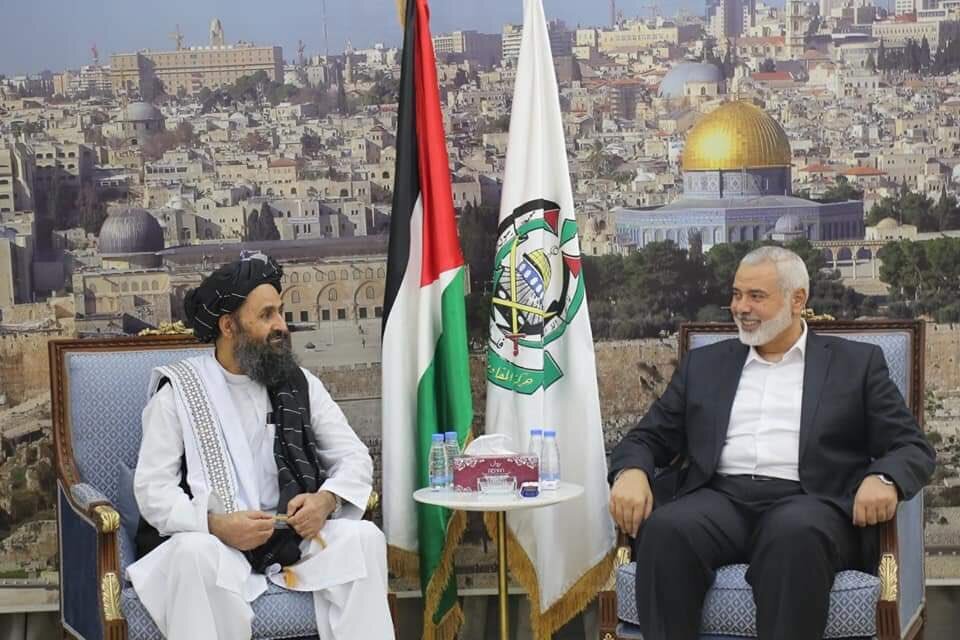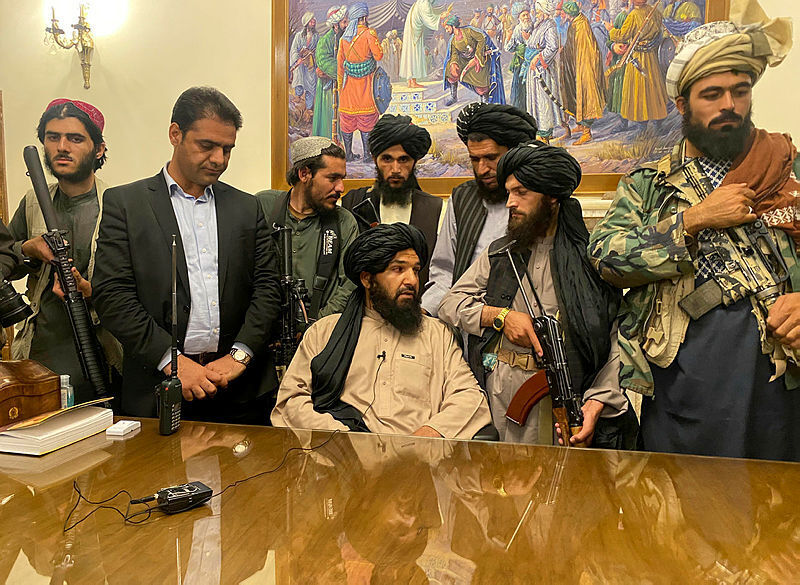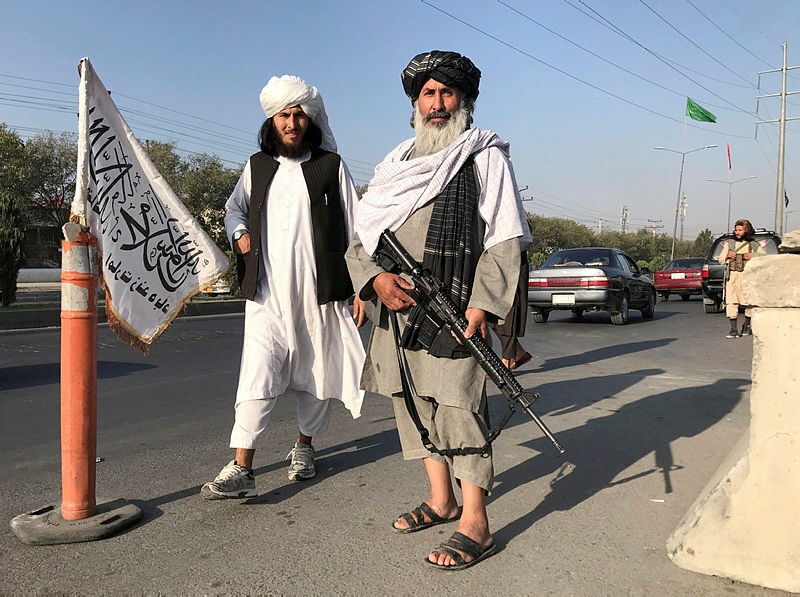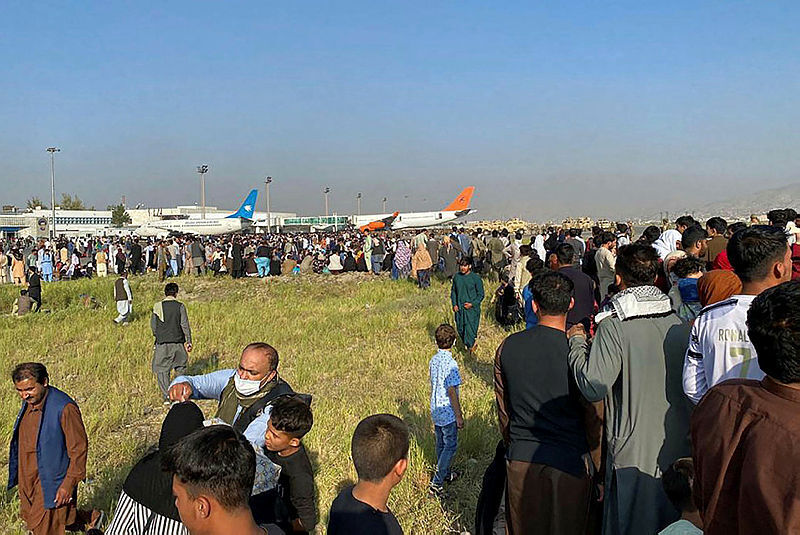The drama in Afghanistan reached its peak on Sunday when the Taliban laid siege to the capital, Kabul, and later conquered it.
From their seat in Qatar, Taliban leaders negotiated with the Afghan presidential palace to coordinate their entry into the capital without bloodshed and promised that no government or military personnel would be harmed and that foreigners would be able to leave the country in safe passage.
The residents of the city were called to stay and a few hours later the Afghan president, Ashraf Ghani, left the country and fled to Tajikistan.
A transitional government will be formed in the near future that will transfer the powers of government to the Taliban, which will begin to rule the country for the second time. Their previous rule lasted from 1996 to 2001, when they were ousted by the U.S. following the 9/11 attacks.
Even before the fall of the capital, the Taliban controlled more than 80% of Afghanistan and all border its crossings. Extremist Islamists have conquered 30 of the Afghan 34 provinces in a rapid-fire campaign that went against U.S. President Joe Biden’s predictions just a month ago who said that “Afghanistan will not fall to the Taliban.”
Within days, the cities of Jalalabad, Bagram with its massive U.S. military base, Kandahar and Mazar-i-Sharif, fell, some even without a fight.
The occupation of Afghanistan took place with great violence, and in a number of cases in which the Afghan army surrendered they were executed by the Taliban. In a number of cities and villages, extremist Islamists have imposed the obligation to wear the burqa according to Sharia rules, and reports from Afghanistan also speak of the forced marriage of girls to jihad fighters.
Jihad fighters were released from a number of prisons as the Taliban advanced to the capital, including Islamic State (ISIS) fighters.
The Taliban released the first “Islamic Emirates” proclamation and actually began their control of Afghanistan on Sunday night.
Sources in the country referred to the rapid collapse of the Afghan army, which officially has 300,000 troops, but some estimate that its actual force does not exceed 60,000 people. The Afghan army has been suffering from corruption in recent years and elements in the country condemned the “princes of war,” a derogatory term for army chiefs whose families traded in weapons.
The Afghan army has been suffering from poor morale for years but was mostly surprised by the rapid American withdrawal. The ousted Afghan president said two weeks ago that the US’ sudden departure was responsible for the deteriorating situation.
On the other hand, extremist Taliban members who had already demonstrated their ability to defeat the Soviet Union in the 1980s, armed with a fighting spirit and extremist ideology, have also been able to sign alliances with powerful Afghan judges in recent years.
The Taliban are loaded with Russian, American, and Pakistani weapons and, according to a series of allegations, Iranian weapons as well.
Ripple effects in the Middle East
The fall of Afghanistan, while the U.S. is fleeing, could severely damage Washington's position in the Middle East and especially its partnerships that fear extremist Islamic movements.
This event comes precisely when a new and radical government emerges in Iran and while in moderate, Sunni Arab countries, there are signs of reckoning in light of the understanding that U.S. policy may lead to a new nuclear deal that will benefit Iran and remove sanctions.
It is possible that the Taliban, who was the partner and backer of al-Qaeda and ISIS, will now make Afghanistan a magnet for global jihad forces, but most of all, they will give a boost to radical Islam, which once again proves that it can defeat advanced Western armies in battle.
The Islamic Emirates, expected to be established by the Taliban, may have comfortable neighborly relations with Iran to the west and its proximity to Pakistan may also affect the entire region.
5 View gallery


Hamas' Ismail Haniyeh meeting a delegation from the Taliban after the May conflict against Israel
(Photo: Courtesy)
It is to be expected that the tailwind that the U.S.'s withdrawal gives to extremist Islamic organizations will also encourage Hamas, which does not hide its satisfaction with the Taliban’s victory. Hamas already congratulated the Taliban on its victory. In recent days, members of the Hamas Politburo have met with those of the Taliban in Qatar. The Taliban congratulated Hamas on its “achievements” during the 11-days of fighting with Israel in May.
There is an ideological closeness between Hamas and the Taliban as they are Islamic movements and also enjoy the support of the Qatari umbrella.
A few years ago, the Taliban set up its political bureau offices in Qatar. It was closed a few months later due to internal disputes but even now some of the Taliban leaders are in Qatar and from there they negotiated the surrender of Afghanistan before entering Kabul.
In recent years, Qatar has hosted nine rounds of talks with the aim of bringing about an organized withdrawal from Afghanistan, during which time the Taliban leadership sat in Qatar, close to the Hamas leadership.
The Islamic Jihad also welcomed the Taliban. One of the founders of the Islamic Resistance in Afghanistan was Sheikh Abdullah Azzam, who was born in a village west Nablus and is was a member of the Muslim Brotherhood. Azzam became famous when he fought against the Soviet army and the battalions of Islamic Jihad are named after him.
The mistake in U.S. intelligence forecasts led to another withdrawal of Western forces, under fire, fleeing radical Islamic organizations, and the impact on the Middle East will be seen in the coming years.





